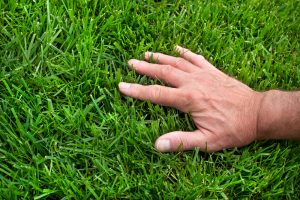Pennsylvania’s Organic Lawn Care Experts
Composting Tips and Tricks
Are you looking to achieve a lush and vibrant lawn in Pennsylvania while also being environmentally conscious? Organic lawnscaping through composting might just be the answer you’ve been searching for! Composting is a natural process that transforms kitchen and garden waste into nutrient-rich soil, fostering healthy grass growth and minimizing the need for harmful chemical fertilizers. In this blog post, we’ll explore the benefits of composting for organic lawn care and how it can help you achieve a stunning lawn while also contributing to a healthier environment. Let’s dive in!
What is Organic Lawnscaping?
Organic lawnscaping is a natural and eco-friendly approach to lawn care that focuses on nourishing the soil with organic matter and minimizing the use of synthetic chemicals. This method encourages the growth of a thriving ecosystem, promoting biodiversity and ecological balance. By embracing organic lawnscaping, homeowners in Pennsylvania can achieve a lush and vibrant lawn that will enhance their curb appeal and more importantly, contribute to a greener, healthier environment.
Why Choose Organic Lawnscaping?
Organic lawnscaping over traditional lawn care practices offers several advantages. Unlike conventional methods that rely on synthetic chemicals, organic lawnscaping promotes long-term soil health and sustainability. By using compost and natural fertilizers, you nurture a thriving ecosystem, fostering healthier plants and improved resistance to pests and diseases. Moreover, organic lawnscaping minimizes harmful chemical runoff, benefiting local water sources and wildlife. By using this eco-conscious approach to lawn care, you’ll enjoy a lush, resilient lawn that not only enhances your outdoor space but also contributes to a greener, healthier planet for generations to come.
Composting: The Power of Turning Waste into Nutrient-Rich Soil
Composting is the cornerstone of organic lawnscaping. This remarkable process transforms kitchen and garden waste, such as kitchen scraps, grass clippings, leaves, and yard waste, into a nutrient-dense mixture for your lawn. As organic materials decompose, beneficial microorganisms work their magic, breaking down the waste into rich humus. This humus becomes a valuable soil amendment, brimming with essential nutrients that nourish your plants from the roots up. By harnessing the power of composting in your organic lawnscaping endeavors, you not only recycle organic waste but also foster a flourishing ecosystem that thrives on sustainability. Embrace composting as the backbone of your organic lawn care, and watch your lawn flourish in Pennsylvania’s green embrace.
The Benefits of Composting for Your Lawn
Composting offers several benefits for your lawn – and your landscape, overall. Some of the most notable benefits include:
- Nutrient-Rich Soil: Composting creates a nutrient-dense soil that enhances the health and vitality of your lawn. The decomposed organic matter provides essential nutrients for the grass and plants, resulting in a greener and more resilient lawn.
- Improved Soil Structure: Compost improves soil structure by enhancing its ability to retain moisture and nutrients. This means less water wastage and a reduced need for synthetic fertilizers.
- Reduced Waste: By composting organic waste, you play a crucial role in reducing landfill waste and greenhouse gas emissions. Composting is a sustainable solution that benefits both your lawn and the environment.
- Eco-Friendly Pest Control: Organic lawns nurtured by compost are better equipped to resist pests and diseases, reducing the need for chemical pesticides.
- Water Conservation: Compost retains moisture in the soil, reducing the need for frequent watering, and helping your lawn survive dry spells.
Composting Tips for Organic Lawnscaping
Now that you understand the importance of composting let’s explore some practical tips for incorporating composting into your organic lawn care routine.
- Start a Compost Pile: Designate an area in your garden for a compost pile or invest in a compost bin. You can compost kitchen scraps, yard trimmings, and organic debris like leaves and grass clippings.
- Mix Greens and Browns: To achieve the perfect balance of nutrients, combine green materials (food scraps, grass clippings) with brown materials (dry leaves, straw). This ensures proper decomposition and prevents odors.
- Turn the Compost: Regularly turn the compost to aerate it and accelerate the decomposition process. This also helps prevent unpleasant smells and encourages even decomposition.
Add Compost to Lawn: Once the compost has broken down into dark, crumbly soil, spread it evenly across your lawn. You can use a spreader to ensure consistent coverage.
Contact Beat The Weeds for Expert Lawnscaping Services
Ready to transform your lawn with composting and organic lawnscaping techniques? Reach out to Beat The Weeds today! Our experienced team of lawn care professionals is passionate about sustainable practices and can help you achieve the lawn of your dreams. We’re looking forward to helping you on your journey to a greener, healthier lawn.








